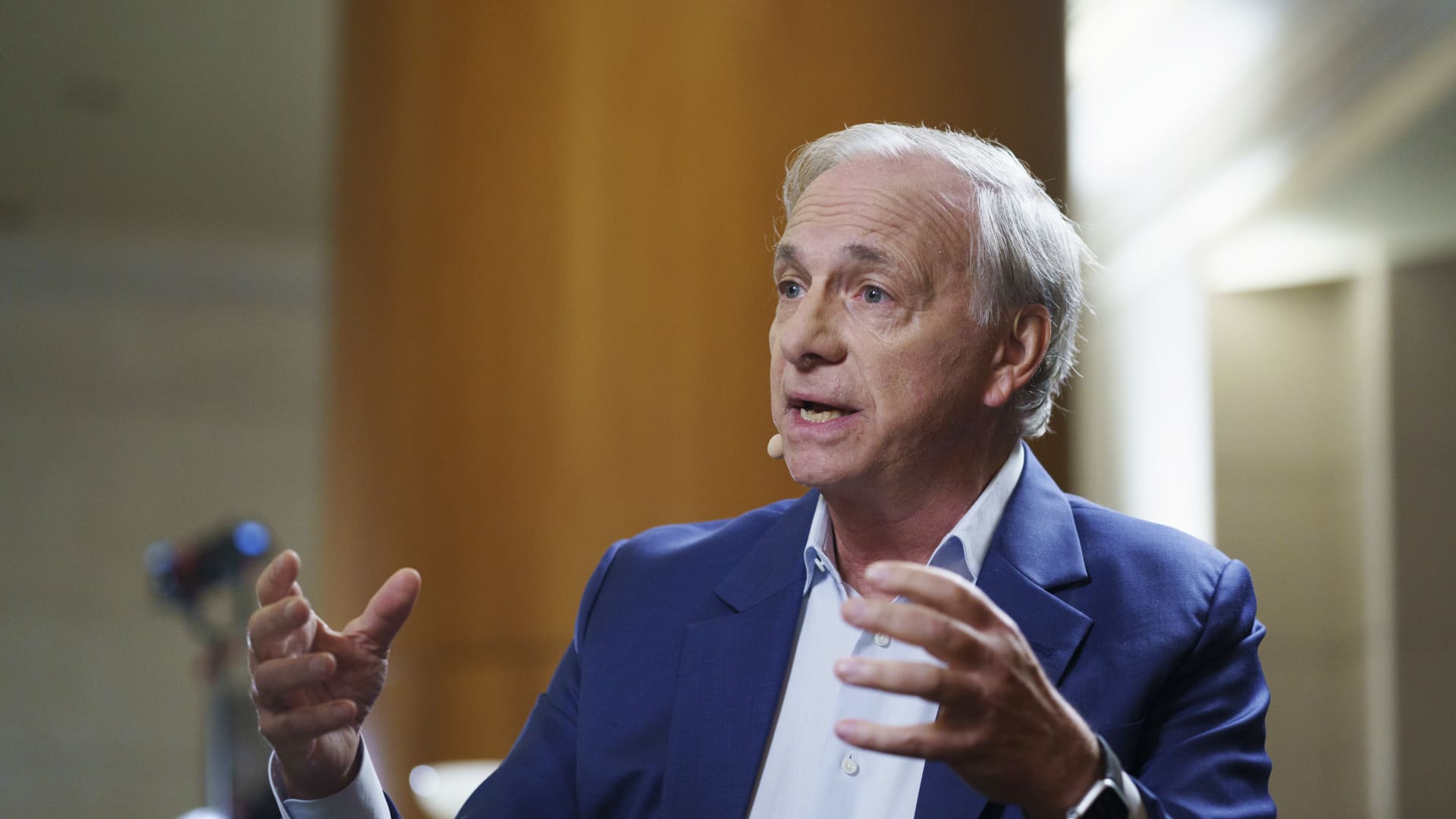DUBAI, United Arab Emirates — Hedge fund titan Ray Dalio issued a fresh warning about the U.S. economy, warning of dire consequences if the Trump administration does not cut the country’s debt.
“It’s like if I was a doctor and I was speaking with you about your condition, I would say to you, this is now very, very serious. All of these are major problems,” Dalio told CNBC’s Dan Murphy at the World Government Summit in Dubai. “What you need to do is cut your deficit from about seven and a half percent of GDP to 3% of gross domestic product, and you can do that. There are certain things that you can do that cut it in a certain way that’ll make it much healthier, so the real problem is a political problem.”
The U.S. gross national debt stood at approximately $36.22 trillion as of Feb. 11, with $28.8 trillion of that as debt held by the public in the form of securities owned by individuals, corporations, state or local governments, Federal Reserve banks, foreign governments, and other entities outside the U.S. government.
High debt means the government spends more on interest payments and is more economically vulnerable in the event of future economic crises. It also leads to higher inflation and creates a burden for future generations.
“I want to alert people. I want to alert government officials,” the billionaire Bridgewater Associates founder said. “I want to help, you know, and so I feel like the doctor, and then I would say everybody, politically … if this doesn’t happen, and we have the equivalent of, you know, an economic heart attack, or a heart attack of the bond market, then you know who’s responsible, because it can happen.”
“So it requires the same kind of discipline as if I was to say to you, OK, you need to change how you eat, you need to change your exercise routine, and you need to do these things.”
Dalio stressed that governments are responsible, and that leaders should make a pledge to reduce the U.S. budget deficit from 7.5% to 3% of its GDP or resign.
When asked what his message was to the Trump administration, Dalio replied:
“I think they recognize the problem, and then in the actions that are being taken, how do you cut costs? How do you raise productivity? … Make sure that you really know what you’re doing and you’re practical, and do it on … the conservative side, because you know, how much can the cutting actually be? We’ll see, and what are the consequences of the cutting and each one of those. So you better take a sharp pencil and be conservative.”
Dalio also warned of debt in private credit, saying a “debt death spiral is that part of the cycle, when the debtor needs to borrow money in order to pay debt service, and it accelerates, and then everybody sees that, and they don’t want to hold the debt. That’s where we’re approaching.”
Dalio’s Bridgewater Associates is one of the world’s largest hedge funds. It had $171.7 billion in assets under management as of September 2023, according to the U.S. Securities & Exchange Commission.

 Accounting1 week ago
Accounting1 week ago
 Personal Finance1 week ago
Personal Finance1 week ago
 Accounting1 week ago
Accounting1 week ago
 Finance1 week ago
Finance1 week ago
 Economics1 week ago
Economics1 week ago
 Economics1 week ago
Economics1 week ago
 Economics1 week ago
Economics1 week ago
 Personal Finance1 week ago
Personal Finance1 week ago























